Search Articles
Browse Content

Article
Harrison's Marine Chronometer
John Harrison (1693-1776) invented an accurate marine chronometer after several decades of research and development. While the pendulum clock had already been invented in the 17th century, a clock that could withstand the vagaries of the...
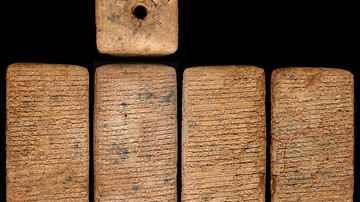
Article
Kesh Temple Hymn
The Kesh Temple Hymn (c. 2600 BCE) is the oldest work of literature in the world, sometimes referenced as the oldest extant religious poem. It is a Sumerian praise song to the goddess Ninhursag and her temple in the city of Kesh, composed...

Article
John Knox on Female Leadership
The rule of women in government and ministry has long been a source of controversy in the Christian Church. Beginning with the Apostolic period, female leadership has been embraced and resisted by innumerable people, the debate centering...

Interview
Interview: Peerless among Princes, the Life and Times of Sultan Süleyman by Kaya Şahin
Join World History Encyclopedia as they chat with Kaya Şahin about his new book Peerless among Princes, the Life and Times of Sultan Süleyman, published by Oxford University Press. Kelly: Thank you so much for joining me today. It is a...

Article
Agriculture in the British Industrial Revolution
Agriculture, like most other areas of working life, was greatly affected by the machines invented during the Industrial Revolution. Agriculture in Britain and elsewhere had made leaps forward in the 18th century, and its success released...
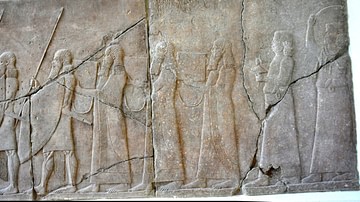
Article
Festivals in Ancient Mesopotamia
Festivals in ancient Mesopotamia honored the patron deity of a city-state or the primary god of the city that controlled a region or empire. The earliest, the Akitu festival, was first observed in Sumer in the Early Dynastic Period (2900-2334...
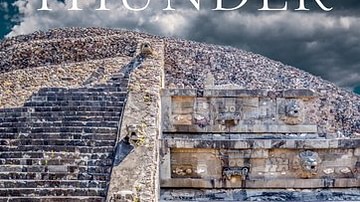
Interview
Interview: Gods of Thunder by Tim Pauketat
Join World History Encyclopedia as they chat with Tim Pauketat all about his new book Gods of Thunder: How Climate Change, Travel, and Spirituality Reshaped Precolonial America, published by Oxford University Press. Kelly: Thank you so...
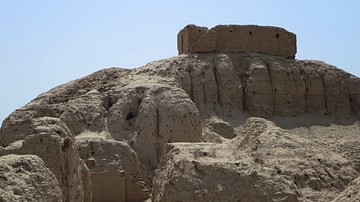
Article
Enlil in the E-kur
Enlil in the E-Kur (c. 2000 BCE) is a Sumerian hymn praising the sky god Enlil, his temple/ziggurat at Nippur, and his consort Ninlil, depicting all three in glowing terms and Enlil as a creator-god. The piece is highly regarded as an important...
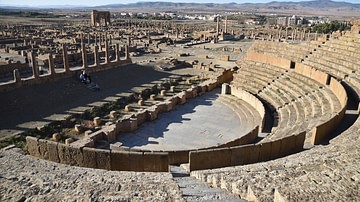
Article
The Splendours of Roman Algeria
Algeria, Africa's largest country, stretches from the Mediterranean coastline to the Saharan desert interior. The country has some of the finest and most diverse Roman sites, including Timgad and Djémila, both well-preserved and UNESCO-listed...
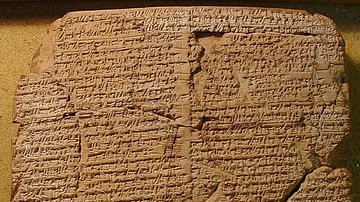
Article
Ancient Mesopotamian Ghost Spell
Medicine in ancient Mesopotamia was based on the belief that illness was caused by supernatural agencies and, although medicines were given and injuries treated, magical spells and incantations were also understood as effective. Among these...